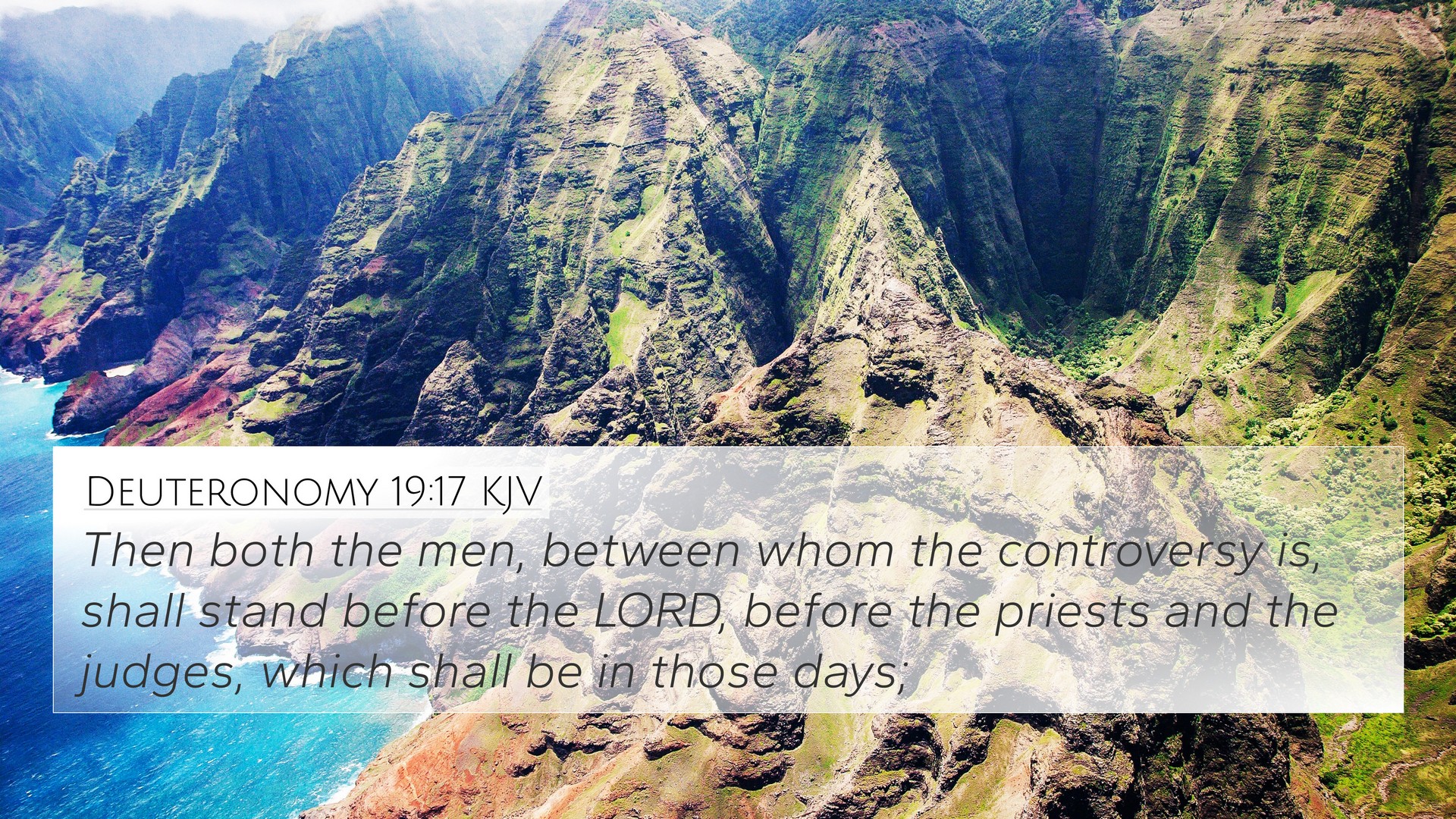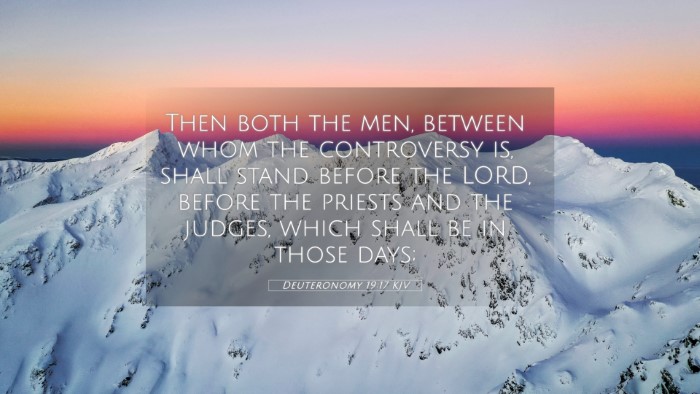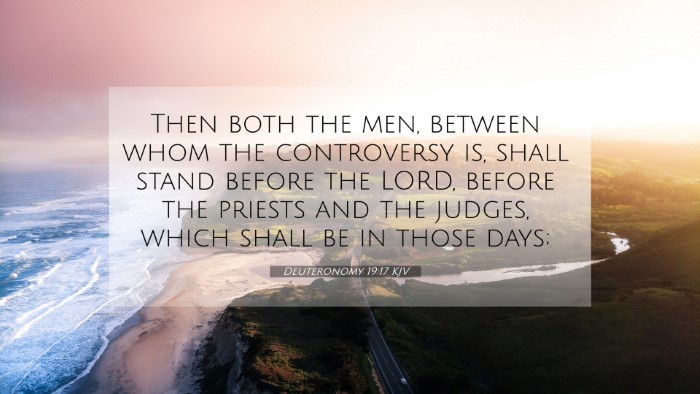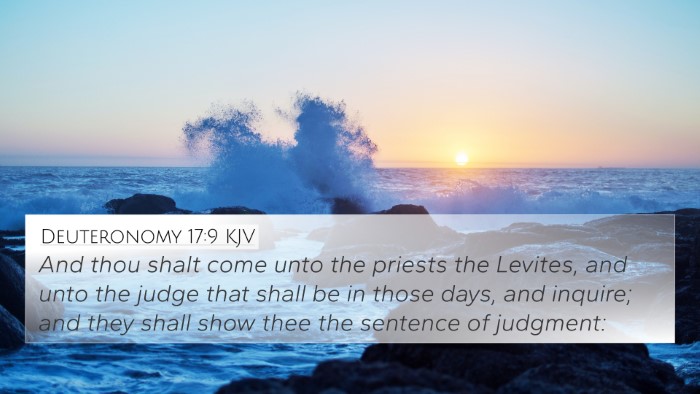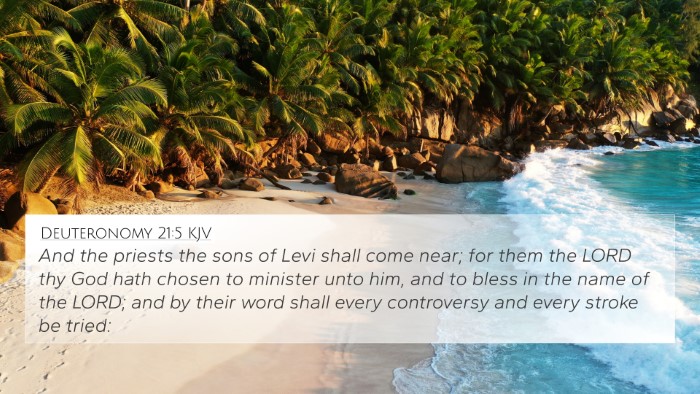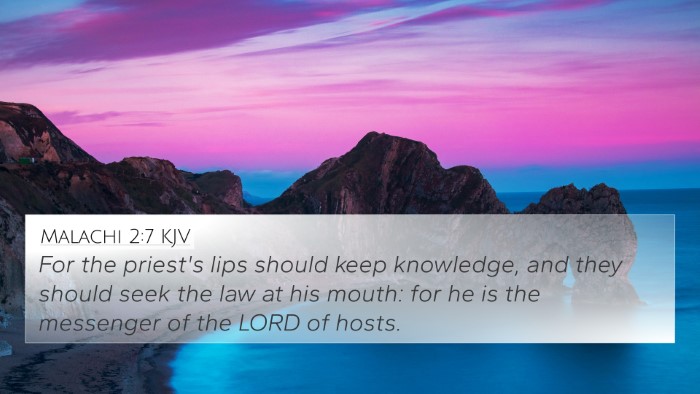Understanding Deuteronomy 19:17
Bible Verse: "Then both the men who have the dispute shall stand before the Lord, before the priests and the judges who are in office in those days."
Summary of Deuteronomy 19:17
This verse emphasizes the importance of fair judicial proceedings in Israel. It outlines the requirement for both parties in a dispute to present themselves before a formal authority, thereby ensuring justice is administered according to God's standards.
Commentary Insights
- Matthew Henry: Henry identifies the verse as critical for maintaining justice. He highlights that the presence of both men indicates a public accountability for their claims. He stresses the role of God as the ultimate judge, reinforcing that human judges act under divine authority.
- Albert Barnes: Barnes suggests that this procedure reflects the seriousness of the judicial process in ancient Israel. He points out that it was a civic duty to resolve disputes openly, thereby reinforcing community ethics and biblical law. The involvement of priests implies a connection between justice and spiritual integrity.
- Adam Clarke: Clarke elaborates on the implications of standing before the judges. He notes that this is not just about resolving disputes but is also meant to instill respect for authority among the people. He also mentions the spiritual oversight provided by priests to guide moral discernment in judgment.
Key Themes from Deuteronomy 19:17
- Judgment and Justice: This passage highlights the accountability of individuals and the necessity of proper legal processes.
- Authority of the Priests: The involvement of priests signifies the blend of civil and religious duties.
- Divine Oversight: Ultimately, all judgments are under God's sovereignty.
Bible Verse Cross-References
- Exodus 23:1-3: These verses discuss the obligation of honesty in legal testimonies.
- Leviticus 19:15: Emphasizes fair judgment without favoritism.
- Deuteronomy 16:18-20: Encourages setting up judges to provide impartial justice.
- Proverbs 18:17: Highlights the importance of hearing both sides of a story before judgment.
- Matthew 18:15-17: Jesus instructs on resolving disputes within the church, showing a continuity of the principle of accountability.
- 1 Timothy 5:19: Advises against accusations of elders unless backed by two or three witnesses.
- Hebrews 13:17: Encourages obedience to leaders who keep watch over the souls of the congregation.
Connecting Themes in Scripture
Deuteronomy 19:17 plays a crucial role in understanding the nature of justice and authority in both the Old and New Testament. The call for accountability resonates across many verses, demonstrating the interconnectedness of biblical instruction on morality and judicial conduct.
Tools for Bible Cross-Referencing
To delve deeper into the connections between Bible verses, various tools can assist in cross-referencing:
- Bible concordance for finding related terms.
- Bible cross-reference guides that provide insights into thematic links.
- Cross-reference Bible study methods to explore deeper connections across scripture.
- Bible reference resources for contextual understanding.
Practical Application
When studying Deuteronomy 19:17, consider the following:
- How do Old Testament teachings compare with New Testament principles of judgment?
- What can we learn about community accountability and moral integrity from this verse?
- How can we apply the principle of fairness in our conflicts today?
Conclusion
Deuteronomy 19:17 teaches us about the importance of justice, authority, and divine oversight in resolving disputes. Its principles resonate through various scriptural texts, emphasizing a unified theme of righteousness and accountability in the life of believers.
By utilizing cross-referencing techniques, we can uncover deeper insights and understand the Bible's interconnected messages, enriching our study and application of its teachings.
